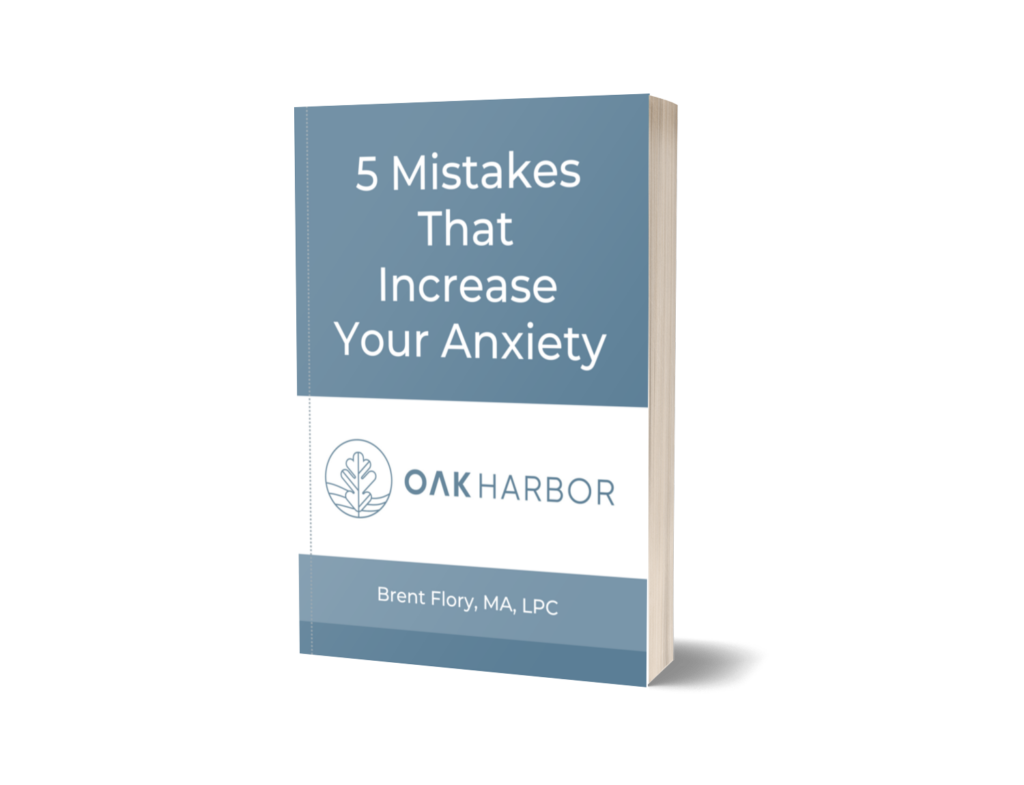Invasion of the Weeds
I don’t like weeds. But they evidently like being all around me because they keep visiting my yard and they do their best to never leave.
My typical strategy with these uninvited guests is to ignore them until I can’t ignore them anymore. For example, on the side of my house I have a bush and fence that hides my garbage and recycling bins. Inside the fence, the ground is covered with gravel to stop anything from growing there. Anything but weeds.
Over the two years our family has lived in the house, a forest of weeds has sprung up inside the fence. And I mean sprung up. The weeds are now taller than the fence and are threatening to overtake the bush facing the street.
Hiding Our Emotional Wounds
We tend to treat our emotional wounds like I treat weeds. We don’t like them, so we do our best to hide or ignore them. Then if our grief gets our attention, we try to distract ourselves from it.
It makes sense that we don’t want anything to do with our emotional wounds, because to state the obvious, they hurt. Badly. For some of us, the wounds come from heartbreaking losses like a loved one dying, or divorce.
Emotional pain can also be caused by other types of changes to our typical pattern of life. Even positive changes can bring up difficult emotions (along with positive ones), like a new job or moving. Emotional pain can also come from an illness or injury, retirement, or the beginning or end of school. There are over 40 types of life experiences that can elicit a grief response within us.
As a society, we handle grief quite poorly. When a loved one dies, you can typically expect multiple people to say something really awkward and unhelpful to you.
“At least they aren’t suffering anymore.”
“You’re lucky to get the promotion, I wish my job made me move out of Ohio.”
“Why be sad? You got to keep your house in the divorce.”
What they share might be intellectually true, but it is usually emotionally unhelpful.
Thus, we are driven to avoid grief as much as possible. So, what do we do? We distract ourselves. We turn to what the Grief Recovery Institute calls STERBs, which stands for Short-Term Energy Relieving Behaviors. STERBs are great at temporarily distracting us.
STERB Examples
Here are some of the most common STERBs that people turn to:
- Workaholism
- Alcohol/drugs
- Food
- Isolation
- Exercise
- Anger
- Shopping
- Sex
To be clear, there is nothing wrong with most of these activities in the proper context. What matters is why we are participating in these activities. If I am enjoying some Ben and Jerry’s ice cream because it’s ice cream night, that’s great. Not to mention tasty. However, if I am eating an entire pint because I’m trying to mask painful feelings due to a loss, then that is where I will run into trouble over time.
A powerful metaphor that The Grief Recovery Method® uses to illustrate this is a kettle on the stove. Imagine that kettle filled with water, with the burner on high so the water will boil. Normally, as the water heats to boiling, the steam generated by the heat of the flame will be released through the kettle’s spout. But imagine that a cork is jammed in the spout. With nowhere to go, immense pressure will build inside the kettle. The built-up energy has nowhere to go.
The cork signifies all the misinformation we’ve been told since we were little children about how we’re not supposed to share when we feel sad or other negative emotions. And when we do feel negative emotions, we need to keep them to ourselves.
As the pressure of emotional pain builds within us, we seek some sort of release. This is where we turn to STERBs.
The Problem With STERBs
There are two main problems with STERBs:
1. They appear to work.
STERBs create an illusion of healing. They lead you to ignore your emotions until you forget them or bury them under other activities.
2. They are a short-term solution at best.
STERBs make you feel better in the moment, but not in the long term. They don’t deal with the root issue, so they do nothing to heal your emotional pain.
When bottled up, over time our emotions start to leak out. And sometimes they explode out. We have all been in situations where our emotional reaction was over the top. This is the natural byproduct of a lifetime of stuffing down our emotions.
We may be able to leverage STERBs to hide our emotional wounds for a while. But they will inevitably find a way to make themselves known.
Back to my story of the weeds by my house. I could have opted for a short-term solution. I could have gotten out my yard clippers and cut them down. That would have looked fine outside of the fence. But they would have just grown back. By investing more time and effort, I got rid of the problem.
Take Action to Heal Your Grief
By using the proven tools within The Grief Recovery Method®, you can experience long-term relief from your emotional pain. I want to challenge you to commit to long-term healing in your life. I can guide you through The Grief Recovery Method® so you experience that true healing. If you want to get started soon contact me today. Or if you’re more skeptical like I was initially, check out The Grief Recovery Handbook first.
It’s your choice. Whichever course you choose, choose a course that moves you toward true long-term healing from your wounds today.
Are you struggling with loss & grief, anxiety, or burnout and live in Ohio? I can help. Reach out to me at Oak Harbor Counseling Services. My office is conveniently located in northern Columbus. You can learn more about my counseling practice here or email me at [email protected].



